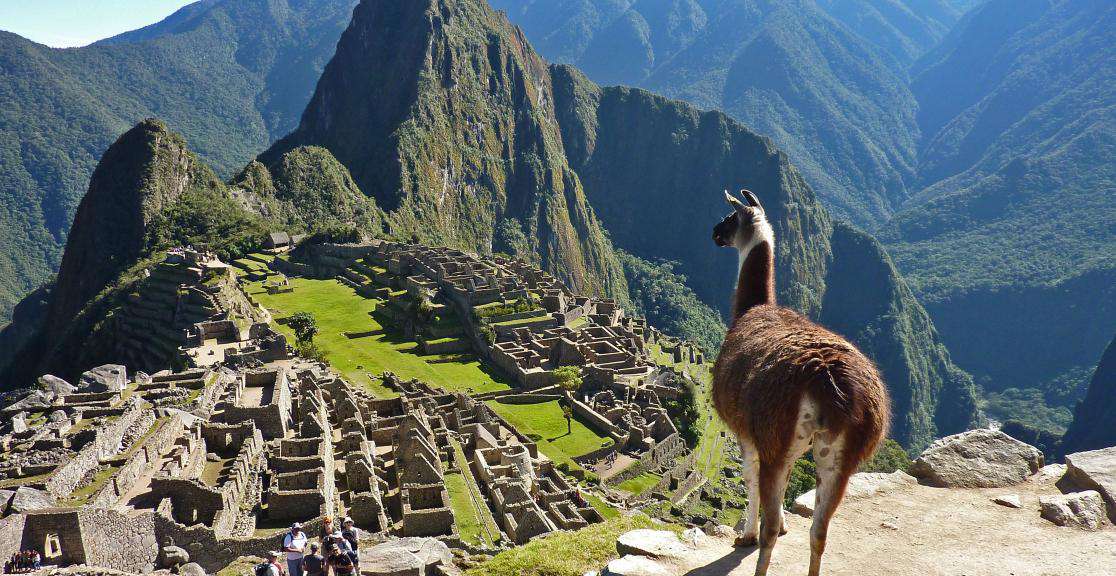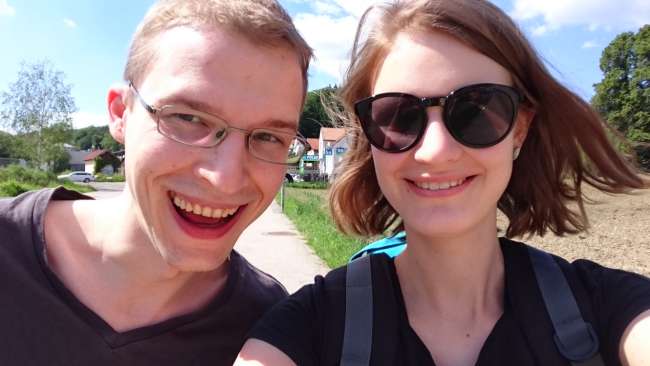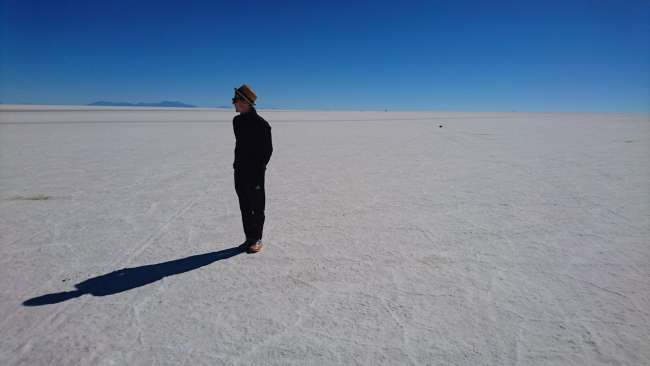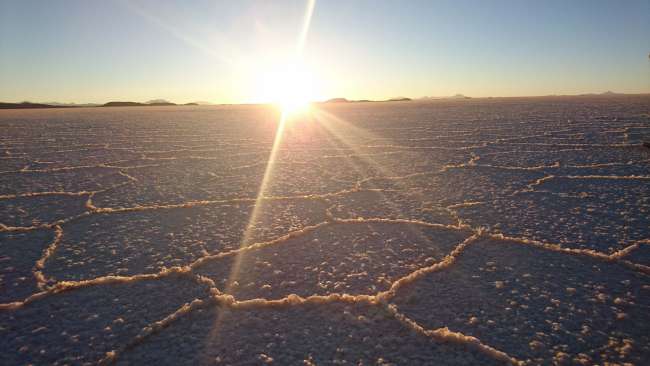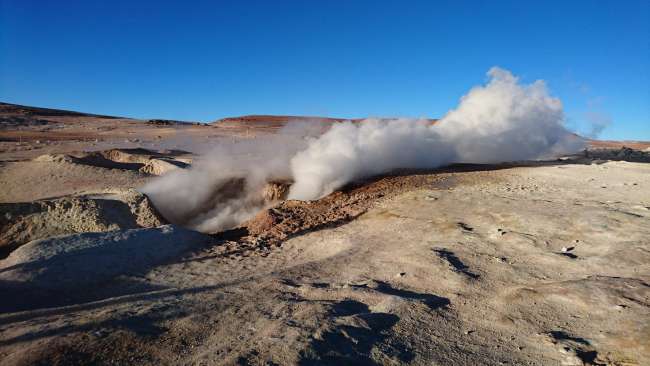Salar de Uyuni: Salt Flats Tour
Wotae: 20.08.2017
Wɔ Nudɔdɔ na Nyadzɔdzɔgbalẽ
The three-day guided tour of southern Bolivia was a unique experience!
Our first stop was at the largest train graveyard in the world, with about 100 locomotives, some of them from the late 19th century. Basically a huge rusty climbing park.
Afterwards, we visited a small village where salt is still produced by hand in a traditional way.
Finally, we drove across the vast expanse of the salt flats in off-road vehicles. From a point where all you can see is salt flats all around and a few mountains in the distant horizon, we cycled about 3 km to a so-called salt hotel, whose walls, furniture, etc. are made entirely of salt. Nearby, we had a great buffet lunch in the open air right in the middle of the salt flats.
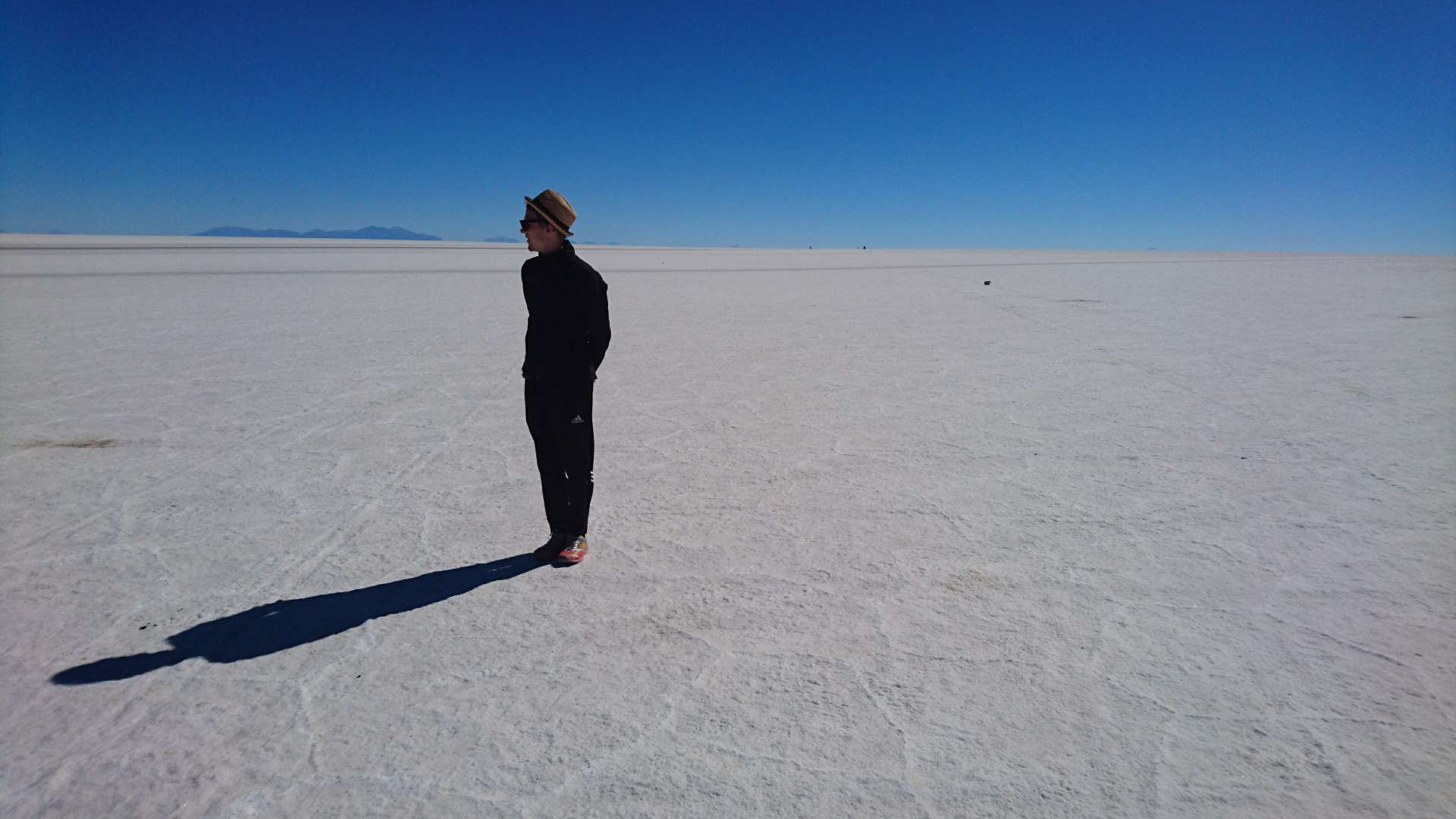
Then we continued by car to Isla Incahuasi, a larger hill in the middle of the desolation of the salt flats, where centuries-old giant cacti grow and from the highest point, there is a great view of the salt flats.
On another such 'island', we climbed into a cave covered with fossilized algae.
In the evening, we were able to marvel at a spectacular sunset over the salt flats!
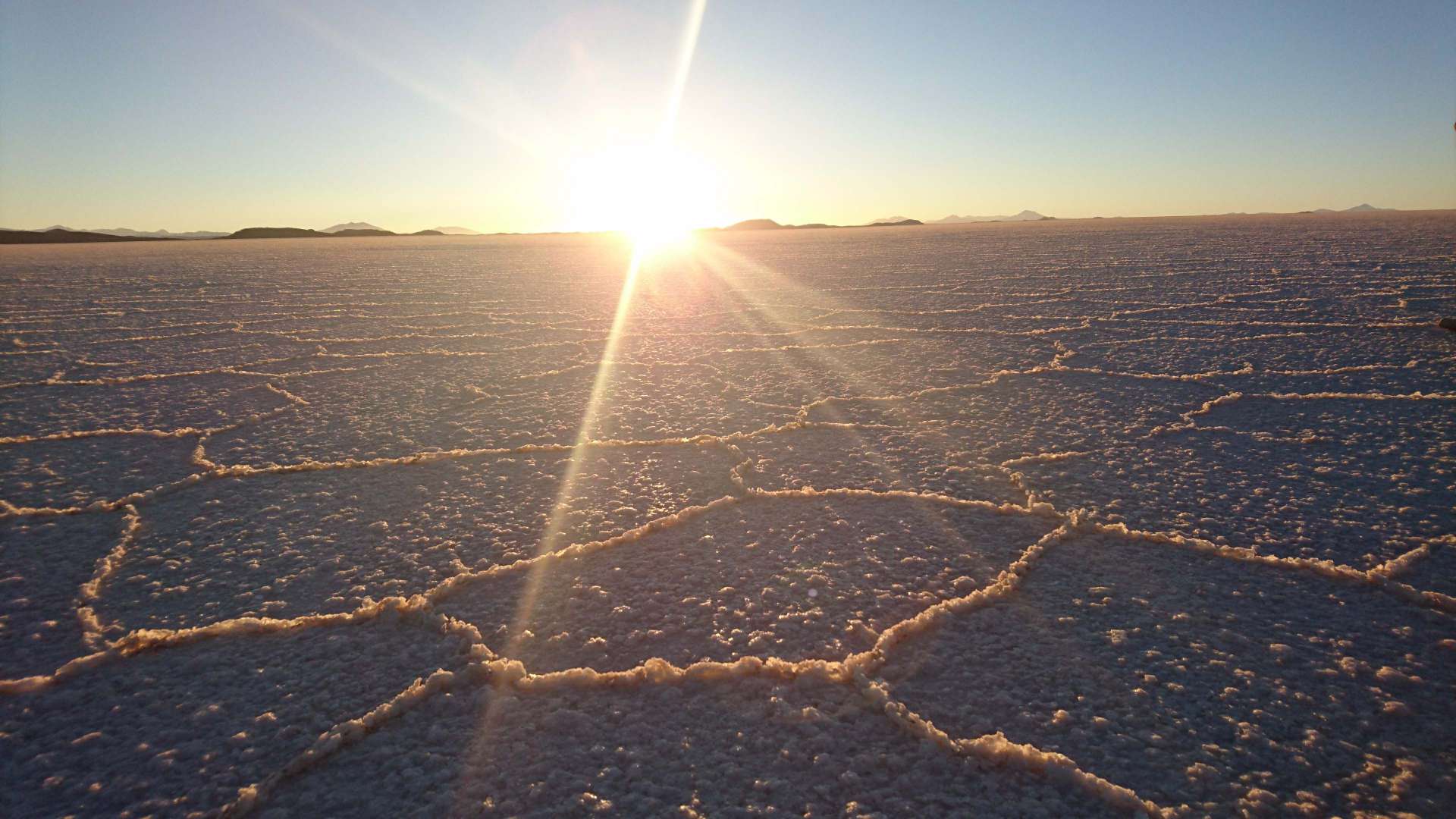
Shortly afterwards, it got incredibly cold very quickly. Salar de Uyuni is located 3653 meters above sea level and since it is currently winter here, it gets very cold if you are not standing in the direct sunshine. We were very happy about the extra thick sleeping bags that were provided to us, as our humble accommodation in the middle of nowhere was not heated. Unfortunately, neither of us managed to sleep at all during the night, because Flo came down with a severe case of food poisoning. Don't worry, he's thankfully feeling better now!
He spent a large part of the next day sleeping in the car, which was clearly the best solution given the low temperatures and icy winds in the areas we visited. On this day, we continuously drove to higher areas. Nevertheless, or precisely because of this, we got to experience more natural wonders of Bolivia:
We visited some lagoons in and around a nature reserve, which have different water colors due to various minerals and are home to numerous flamingos.
Our route took us through several deserts, past canyons, semi- and inactive volcanoes, and other interesting rock formations, all the way to a large boiling geyser field at 5,000 meters altitude.

We then spent the night in an even simpler accommodation in dormitories with gravel floors.
This tour was definitely the most exhausting but also the most impressive experience of the whole trip!
Wɔ Nudɔdɔ na Nyadzɔdzɔgbalẽ
Ŋuɖoɖo
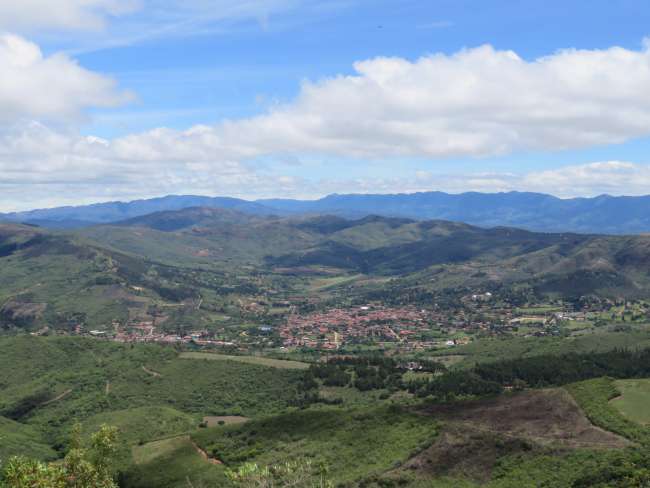
Mɔzɔzɔ ŋuti nyatakakawo Bolivia
